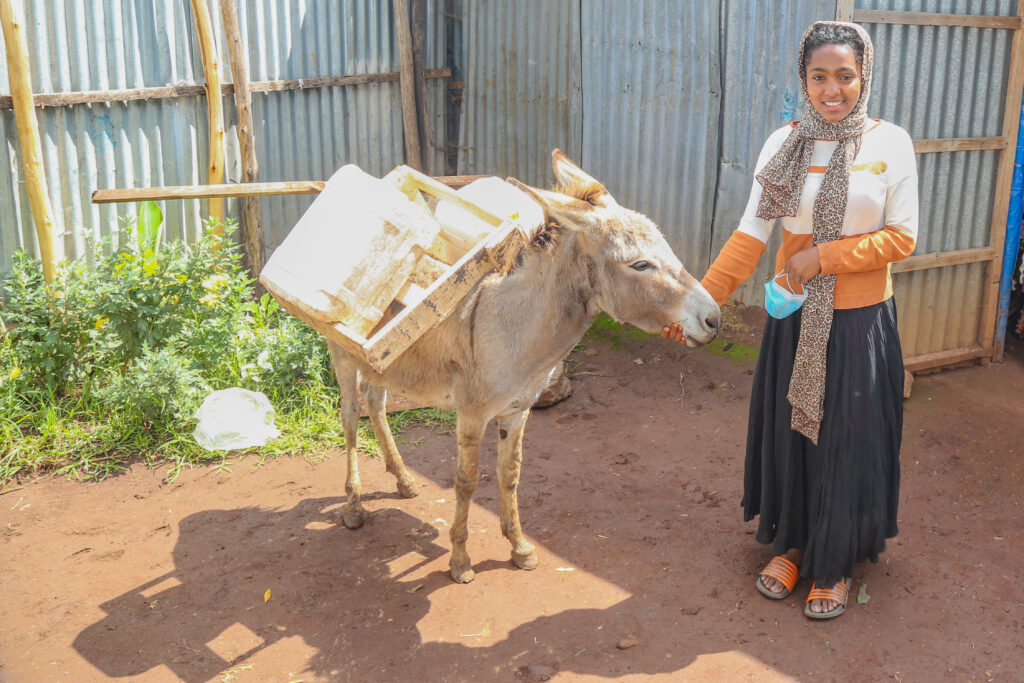Donkeys - an important support for women, girls and families
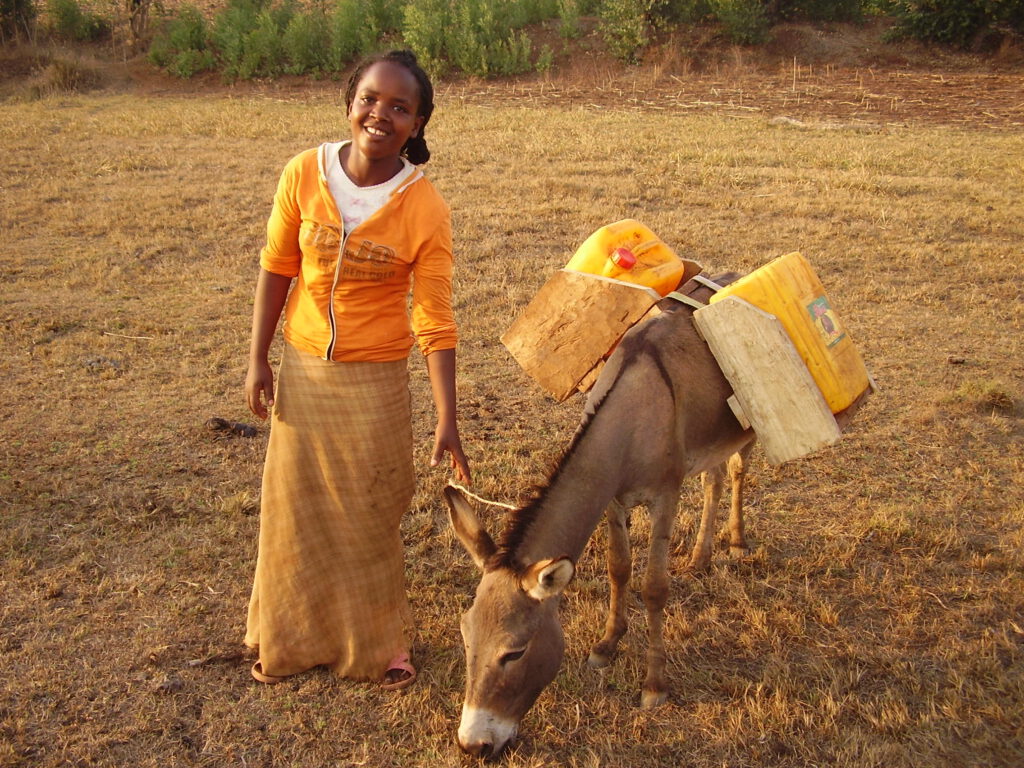
Donkeys as water carriers in Africa
Donkeys are widespread farm animals in Ethiopia and are used for various purposes – especially as pack animals for carrying large quantities of water. They are common and frugal animals that do not need to be trained for the task of carrying water. They live up to 15 years and have offspring. They are of robust constitution, can carry up to 80 litres of water and can be used for a variety of other transport tasks, such as transporting crops to local markets or the sick.
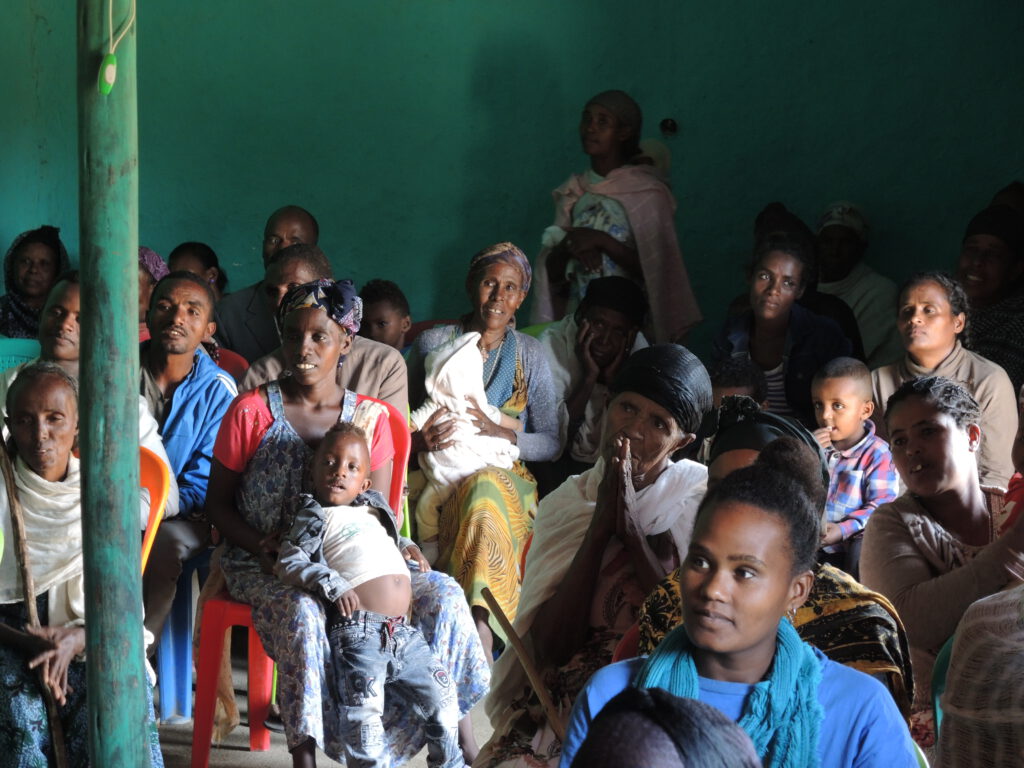
Girls can attend school instead of carrying water
When donkeys are used to transport water from the water source to the house, women and children are spared the burden of carrying water. In rural Ethiopia, water sources are often far away from settlements and it is traditionally the task of women and girls to fetch water for the household.
With heavy jerry cans or buckets on their backs, they are on foot for hours in the heat of the day – often on paths that are not without danger – to fetch drinking water to supply their families at remote water points. On average, they carry 20 litres of water over distances of about 5 to 15 km on foot per day.
When donkeys are used to transport water, the time and effort required is significantly reduced. Time resources are freed up so that the girls can attend school more regularly.
Women gain time for productive, income-generating activities or to attend training. Improved access to water also provides households with sufficient water for personal hygiene or crop irrigation.
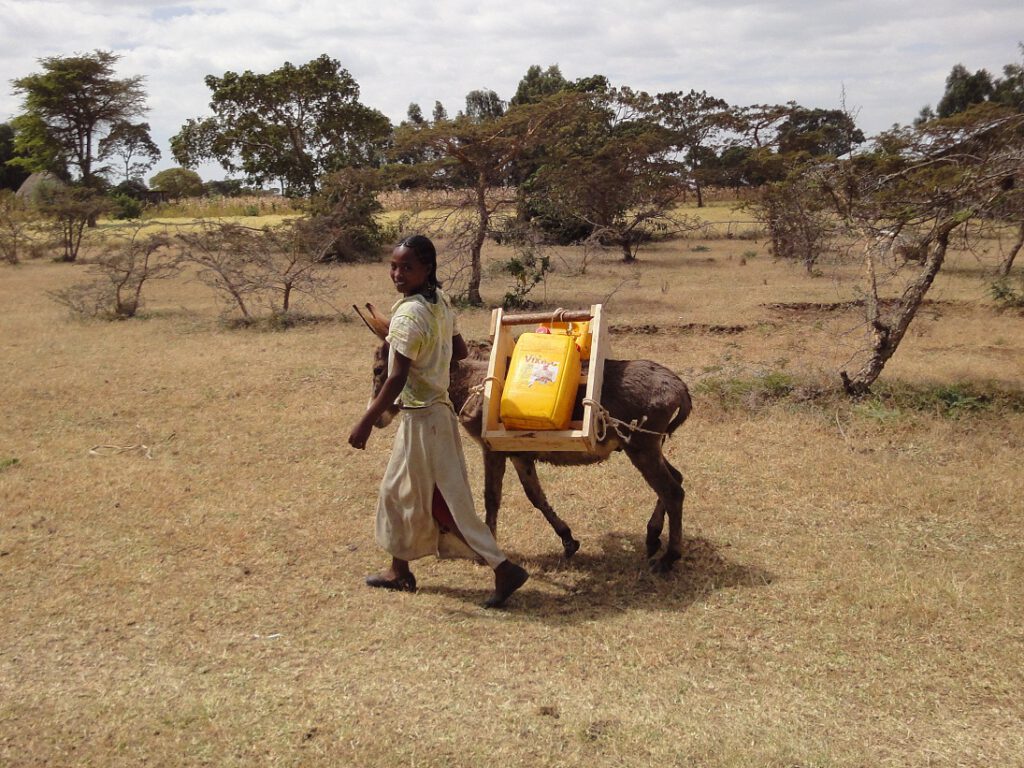
Donkeys are “gifts from heaven” for the women
For 20 years, the WaterFoundation has regularly distributed donkeys to women in Eritrea and Ethiopia. More than 2000 donkeys have already been given new owners. The women are always overjoyed and grateful, because word gets around how much the good-natured beasts of burden change the lives of the girls, women and their families for the better. The names they give their donkeys speak for themselves, such as “Roba” (gift from heaven) or “Relief” (relief).
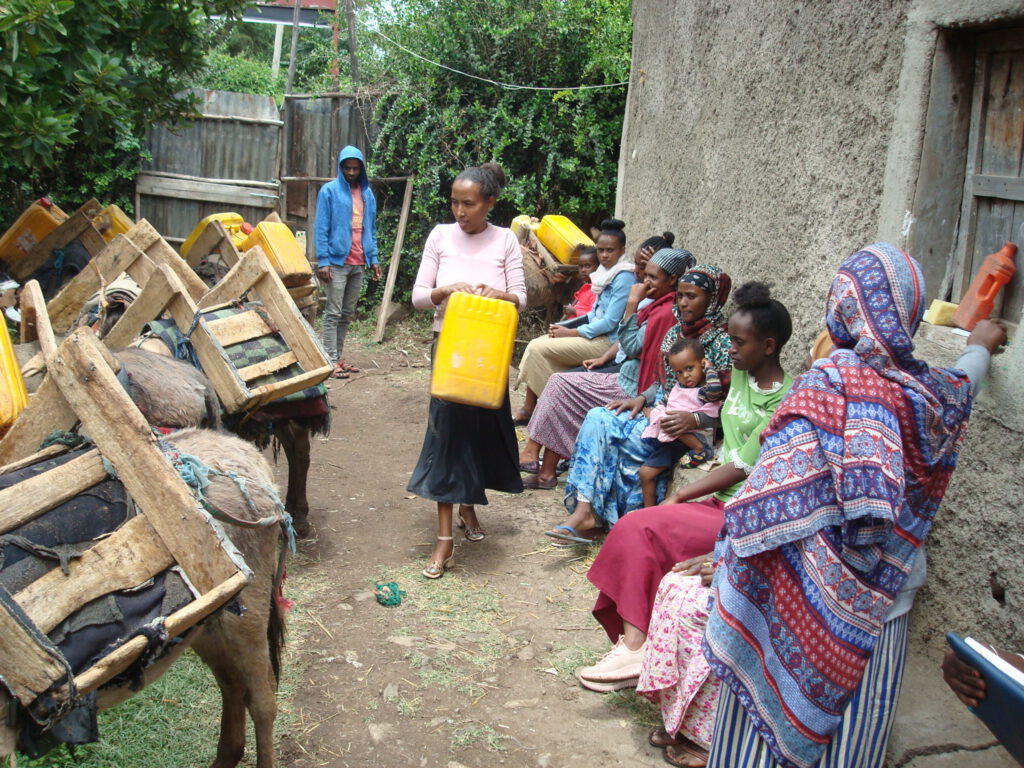
Long-time cooperation partner Ethiopia Gospel Deliverance Church
The distribution campaigns have been taking place in Ethiopia for many years under the aegis of the Ethiopia Gospel Deliverance Church. Pastor Demeke Kebede, who succeeded the recently deceased Yemaneberehan Endale, is now the WaterFoundation’s cooperation partner. He has excellent local knowledge and a nationwide network.
Before distribution, local project committees are formed. Together, the donkeys are purchased at the livestock markets in the region and equipped by the helpers with a wooden carrying frame and two 20-litre jerry cans each. They also bring the donkeys to the distribution points.
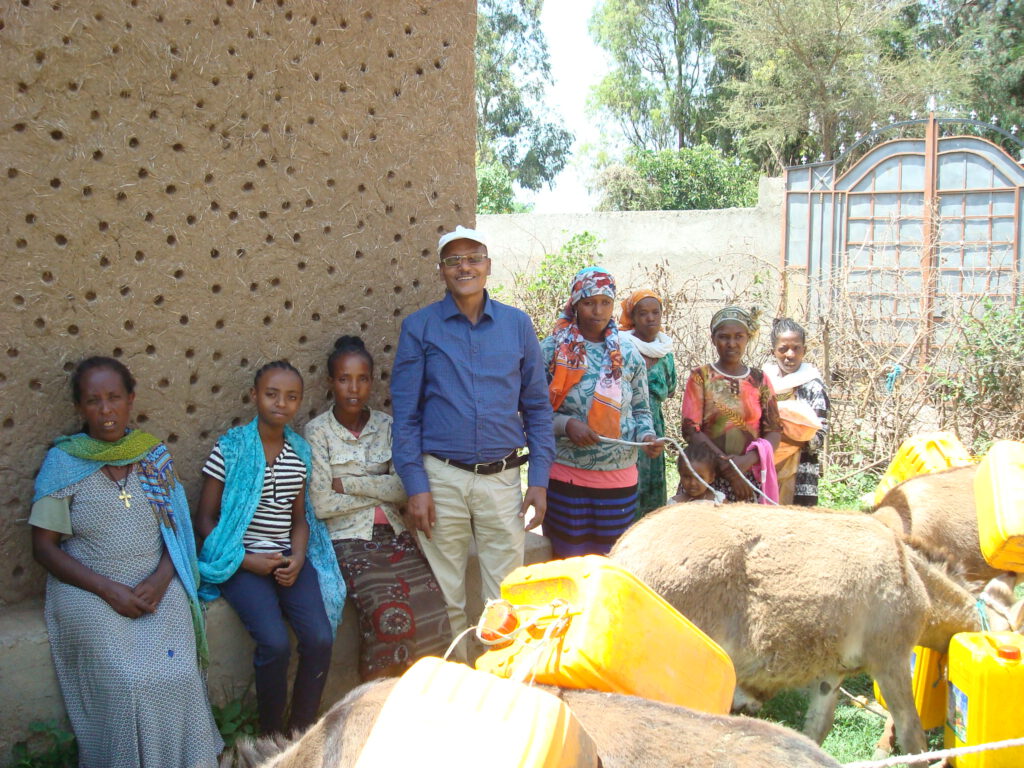
Selection criteria: Who gets a donkey?
The selection of project beneficiaries is done with the help of the local church leaders, as they are most familiar with the local conditions and needs. The selected women nominate Muslim or Orthodox women from their environment to ensure that other population or religious groups also benefit from the distribution. After verifying that there is a concrete need among the nominees, the selection is confirmed by the project committee.
After appropriate documentation and signing of the contract, 50 to 100 animals are officially handed over to their new owners by lottery, usually once a year in a selected region of the country.
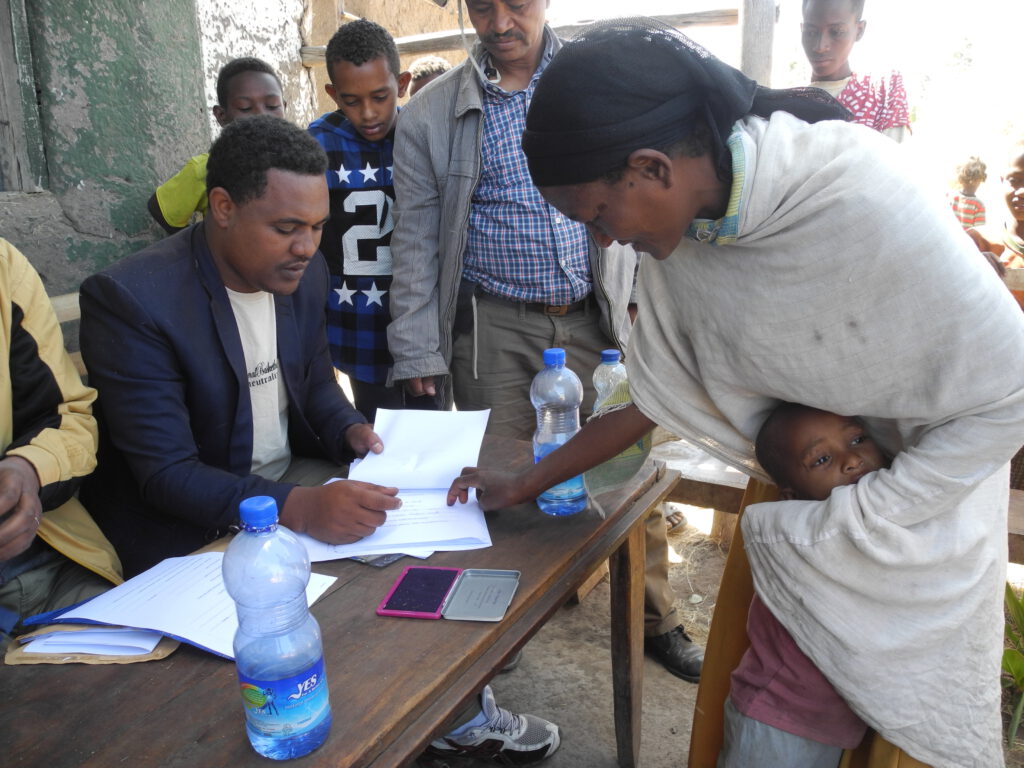
Costs: Water donkeys are cheap, but very valuable
Only 175 euros are enough to give a family a “water donkey” with equipment. But for the families they are invaluable.
Help them with your donation!
